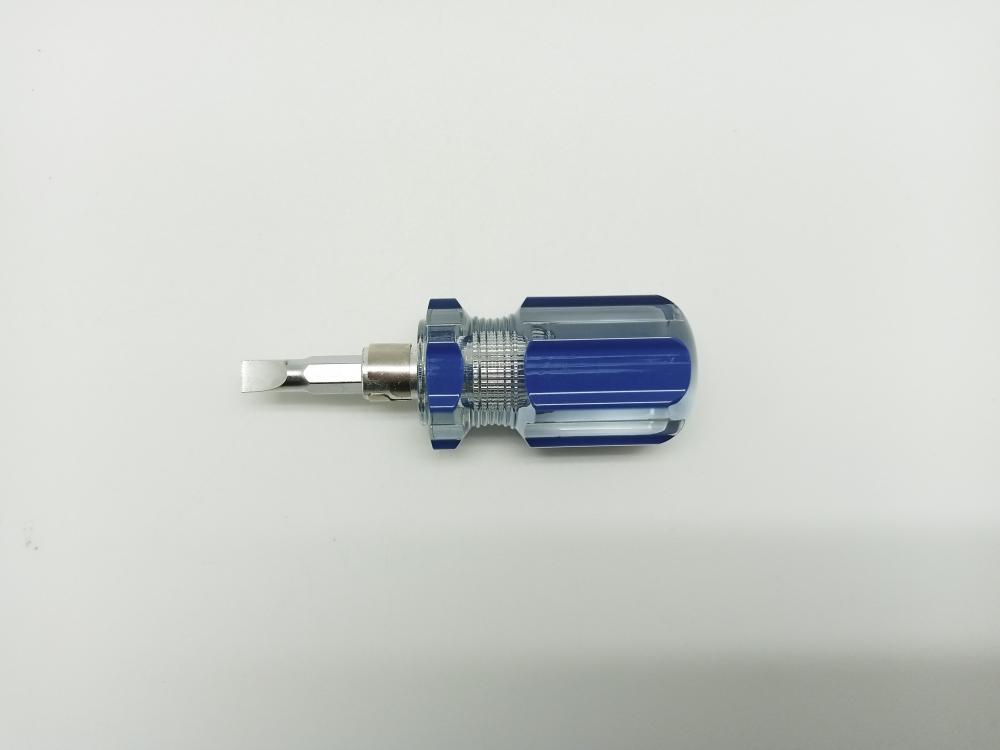NTC temperature sensor

Understanding NTC Temperature Sensor
At Western Electronic Components (WECC), we've been at the forefront of thermal management technology since our inception in 2008. Our expertise spans across a wide range of thermistor products, including the highly versatile NTC temperature sensor. The NTC temperature sensor is a critical component in many applications, known for its sensitivity and accuracy in temperature measurement. In this exploration, we'll delve into the nuances of NTC temperature sensors, offering insights from our years of experience and addressing some common queries.
Why NTC Sensors Matter
NTC temperature sensors play an indispensable role in various industries, including automotive, healthcare, and consumer electronics. Their ability to provide accurate temperature readings makes them essential for monitoring and controlling processes. From ensuring the optimal performance of electronic components to maintaining the correct environment in medical storage facilities, the applications are as diverse as they are critical.
Features of NTC Temperature Sensor
The hallmark of the NTC temperature sensor is its negative temperature coefficient, which means the resistance decreases as the temperature increases. This characteristic allows for precise temperature monitoring. Compared to other temperature sensing solutions, NTC sensors offer a cost-effective and efficient means to achieve accurate thermal readings.
Applications of NTC Sensors
Automotive temperature control and monitoring
Medical device temperature regulation
Consumer electronics thermal management
Each application benefits from the sensor's rapid response to temperature changes, ensuring safety, efficiency, and reliability in operation.
Choosing the Right NTC Sensor
Selecting the appropriate NTC temperature sensor for your application involves considering several factors such as temperature range, accuracy requirements, and physical size. At WECC, we cater to these needs with an extensive portfolio of NTC sensors.
Custom Solutions by WECC
Understanding that off-the-shelf products don't always meet specific project requirements, our team specializes in providing custom NTC temperature sensor solutions. We work closely with clients to design sensors that fit their exact specifications, ensuring optimal performance in their application.
NTC vs. PTC Thermistors
Though both NTC and PTC thermistors serve to measure temperature, they operate on fundamentally different principles. The PTC (Positive Temperature Coefficient) thermistors exhibit an increase in resistance with an increase in temperature. This distinction makes NTC sensors the preferred choice for applications requiring a wide temperature sensing range and high sensitivity.
Advantages of NTC Temperature Sensors
One of the primary advantages of NTC temperature sensors is their high sensitivity to temperature changes. This sensitivity allows for rapid detection and response, which is critical in applications where temperature regulation is essential for safety and performance. Additionally, NTC sensors are relatively low in cost, making them an economical choice for large-scale deployment in consumer electronics and industrial applications.
Addressing Challenges with NTC Sensors
While NTC temperature sensors are widely used and highly effective, selecting and integrating these sensors into complex systems can present challenges. Calibration, interfacing with microcontrollers, and environmental considerations must be taken into account. At WECC, we leverage our technical expertise to assist clients in overcoming these hurdles, ensuring seamless integration and optimal functionality.
Innovation at WECC
In our quest to provide the highest quality and most innovative thermistor solutions, we continually invest in research and development. Our commitment to innovation has led to advancements in NTC temperature sensor technology, driving higher performance standards and opening new avenues for application.
Incorporating anecdotal evidence, one of our most memorable projects involved designing a custom NTC solution for a renewable energy application. The challenge was to create a sensor capable of withstanding extreme environmental conditions while providing precise temperature measurements. Our solution not only met but exceeded client expectations, highlighting our ability to tackle complex problems with innovative approaches.
Final Thoughts
The NTC temperature sensor is a small component with a significant impact. Its role in enhancing the safety, efficiency, and reliability of various applications cannot be overstated. At WECC, we pride ourselves on our ability to provide high-quality NTC sensors and custom solutions that meet our clients' diverse needs. Drawing on our wealth of experience and commitment to innovation, we are your ideal partner for all things related to NTC temperature sensors.
For assistance with your temperature sensing requirements or to learn more about our capabilities, don't hesitate to reach out to our team. Together, we can explore the optimal solutions to ensure your project's success.

What is an NTC temperature sensor?
At WECC, we often describe an NTC temperature sensor as a highly sensitive resistor whose resistance decreases as the temperature increases. This characteristic makes it perfect for a wide range of applications, from automotive systems to medical devices. One of the reasons we emphasize NTC sensors in our product lineup is their reliability and accuracy in providing temperature readings. Picture this: you're driving a car in varying weather conditions. The last thing you want is a temperature sensor that lags behind the actual engine temperature, leading to potential overheating. NTC sensors offer that peace of mind with their rapid response times.
What is the difference between NTC and PTC sensors?
Diving into the world of thermistors, you'll come across NTC and PTC types. The fundamental difference lies in how their resistance changes with temperature. NTC sensors decrease in resistance as temperature rises, making them ideal for a broad monitoring spectrum. Conversely, PTC sensors work in the opposite manner; their resistance increases with temperature. This makes PTC sensors advantageous in applications requiring over-current protection. At WECC, we often guide our clients toward NTC sensors for applications requiring nuanced temperature control and detailed monitoring.
What is the difference between NTC and RTD sensors?
This question brings us to a fascinating comparison. NTC thermistors and Resistance Temperature Detectors (RTDs) both measure temperature, but they cater to different needs. RTDs are known for their precision in higher temperature ranges and stable long-term performance. However, NTC thermistors, such as those we specialize in, offer advantages in terms of smaller sizes, faster response, and cost-efficiency for moderate temperature ranges. Choosing between them often comes down to the specific requirements of your application, including the temperature range, accuracy needed, and budget constraints. We pride ourselves on helping clients navigate these choices at WECC.
What does NTC mean on a thermostat?
Seeing 'NTC' on a thermostat signifies that it utilizes an NTC thermistor to monitor temperature. This is a bit like having a highly sensitive and accurate guardian for your environment, whether it's ensuring your office maintains a comfortable temperature or keeping critical components in electronics from overheating. The efficiency of NTC thermistors in such roles comes from their rapid response to even slight changes in temperature, enabling precise control over heating and cooling systems.
What are the advantages of using NTC sensors in consumer electronics?
In the consumer electronics world, NTC sensors are virtually unsung heroes. Their compact size allows them to fit into increasingly miniaturized devices, from smartphones to wearables. Moreover, their swift response to temperature changes ensures that devices operate within safe thermal limits, enhancing both performance and longevity. Imagine playing your favorite mobile game or using a high-performance laptop without it overheating--NTC sensors play a crucial role in making that a reality. At WECC, we're constantly exploring new ways to integrate NTC technology into consumer electronics, pushing for even greater efficiency and reliability.
What are some common misconceptions about NTC temperature sensors?
A prevalent misconception is that NTC sensors are only suitable for low-temperature applications. The truth is, with the appropriate design and materials, these sensors can accurately measure a broad spectrum of temperatures, making them versatile components in various sectors. Another misunderstanding is regarding their durability. Our experience at WECC has shown that with proper integration and protective measures, NTC sensors can withstand harsh conditions, including in automotive and industrial environments. We love debunking these myths, showing just how flexible and durable NTC temperature sensors can be.
How does WECC approach designing custom NTC solutions?
Customization is at the heart of what we do at WECC. Understanding that no two projects are the same, we begin by closely collaborating with our clients to grasp their specific needs and constraints. Our team balances the technical requirements with practical considerations, drawing on our vast experience to design NTC solutions that not only meet but exceed expectations. Whether it's developing a sensor for extreme environments or integrating into a compact consumer electronic device, our focus is on delivering performance, reliability, and cost-effectiveness. Let's just say, if you can envision it, we're here to make it happen.
Resources
- Omega - NTC Thermistors Resource - Explore Omega's comprehensive guide to NTC thermistors, including information on applications, features, and selection criteria.
- Microchip - NTC Thermistors Design Center - Access Microchip's design center for NTC thermistors, offering technical resources, application notes, and product information.
- Analog Devices - NTC Thermistors Temperature Sensors - Read Analog Devices' article on NTC thermistors as temperature sensors, covering principles of operation and practical considerations.